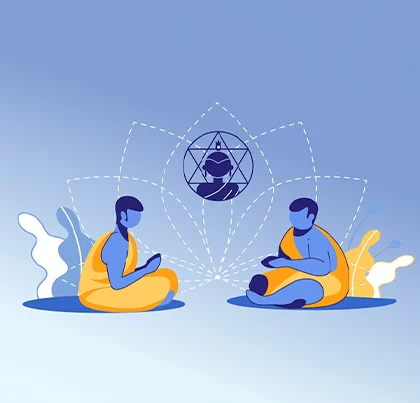Understanding the Complicated Nature of Co-Occurring Disorders

Learning to cope with anxiety, depression, trauma, or addiction is an arduous journey. However, for those suffering from co-occurring disorders, these issues can compound themselves to create a challenging scenario that can feel overwhelming and helpless. Addressing the interconnected nature of co-occurring disorders and understanding how they complicate the recovery process is essential in formulating one’s recovery plan and learning how to best support loved ones who are going through the recovery process. Co-occurring disorders require a great deal of time and personalized approaches to address. However, modifying one’s recovery plan through the course of recovery can allow each person to address any issues they may be struggling with, and it is possible to heal from even the most difficult of times.
What Is a Co-Occurring Disorder?
Co-occurring disorders can be incredibly complex, and each person will experience them differently. Co-occurring disorders are mental health disorders that are combined with a substance abuse disorder. This can be any number of mental health issues, such as anxiety, depression, panic, bipolar disorder, schizophrenia, or any other kind of diagnosable mental health disorder. Co-occurring disorders can often develop as a person turns to drugs or alcohol as a way to cope with their mental or emotional state in an attempt to quell one’s anxieties or feel relief during a depressive episode. These coping mechanisms can lead to an addiction to these substances while still leaving the underlying mental health disorder unaddressed.
However, these can oftentimes be difficult to diagnose for those who are seeking recovery for addiction itself. Due to the nature of addiction recovery, anxiety, depression, withdrawal, and other emotional effects can all manifest as part of the recovery process, making it very difficult to discern how much of one’s anxiety is coming from an anxiety disorder, and how much is occurring due to the cessation of one’s use of addictive substances. Determining the source of each individual’s anxiety and their reasoning for turning to drugs or alcohol in the first place can be the first step in identifying and creating an effective recovery plan for those suffering from co-occurring disorders.
How Co-Occurring Disorders Complicate Recovery
Addressing these issues is a complicated endeavor, beginning with the struggle of identifying the co-occurring disorder in the first place. This can be further complicated if an individual had not been aware of their diagnosis before turning to drugs or alcohol as a coping mechanism. The recovery process for these instances can be difficult and will take a lot of time. However, it is possible, with the most success coming from programs that can simultaneously address both the mental health disorder(s) and the person’s use of an addictive substance.
Addressing these issues at the same time is paramount in creating an effective recovery plan. Addressing one’s use of drugs or alcohol without addressing their underlying depression, anxiety, panic, or other mental health disorder may leave a person feeling like they are back at the start, still believing they have to cope with their mental health with few outlets in which to process their persistent emotional turmoil. This can increase the chance that a person may turn back to drugs or alcohol again to cope with these issues. Likewise, addressing one’s mental health while avoiding their use of addictive substances can leave them continuing to engage in destructive behaviors, and can stunt their recovery as their use of drugs or alcohol continues to introduce more stresses, anxiety, or depression into their lives.
Taking the First Step
Addressing co-occurring disorders involves acknowledging that there are a number of dimensions to one’s recovery, and it is essential to prepare for the complicated nature of recovery due to the pull of both one’s addiction as well as their mental state. Education on how these two different aspects influence each other is important in understanding each of their roles in one’s current life, and how each dimension needs to be addressed in the same, interconnected way. Using your hobbies, interests, and supports can be beneficial as a point of stability while making these changes, and keeping a constant, tangible sense of consistency can provide the structure needed while an individual may be addressing their own recovery on multiple other fronts. For those supporting a loved one through this recovery process, providing a steady and safe atmosphere can be incredibly beneficial, with schedules to keep a person busy and clearly defined. Even written rules or responsibilities can all help a person remain grounded and direct their own energy in an easy-to-understand way. Nothing about recovering from mental health disorders or addiction is easy, and having to overcome both simultaneously is an exercise in true strength.
Co-occurring disorders are complicated and require a specialized approach in order to be effectively addressed. At Brighton Recovery Center, our professional staff specializes in creating programs that can help you with your co-occurring disorders effectively and safely. We offer a number of different programs to help you address your unique needs and goals through the recovery process, such as detox services, sober living, partial hospitalization, and intensive outpatient programs. Our expansive, beautiful campus also provides fresh air, great scenery, and several on-site facilities to help you continue your recovery in a safe and supportive environment. Our recreation center also contains a coffee shop, thrift store, gym, yoga studio, and much more to help ensure that you get the most out of your time with us. For more information on how we can personalize a program for you, or talk to one of our caring, trained representatives about your unique situation, call us today at (844) 479-7035.



